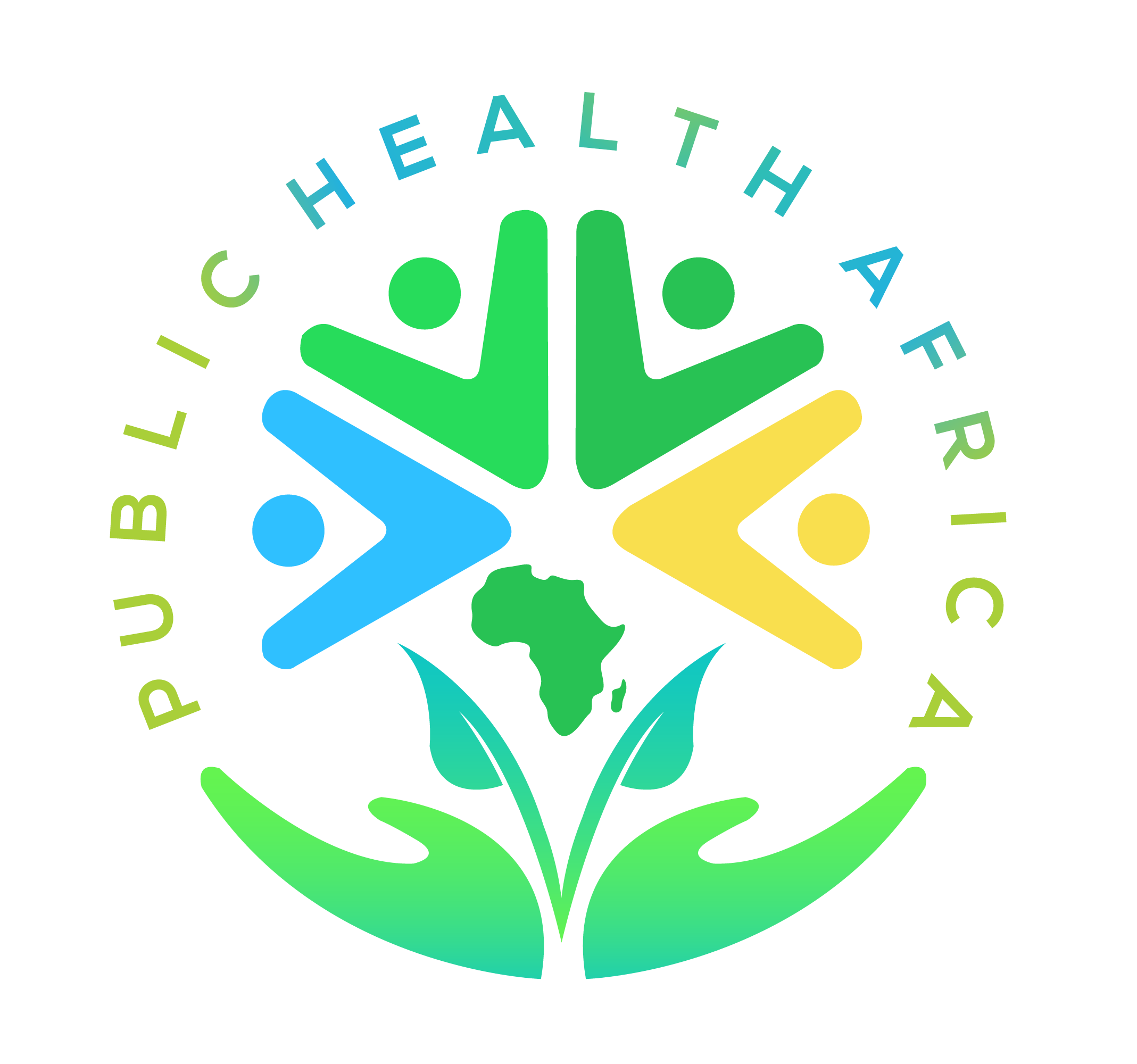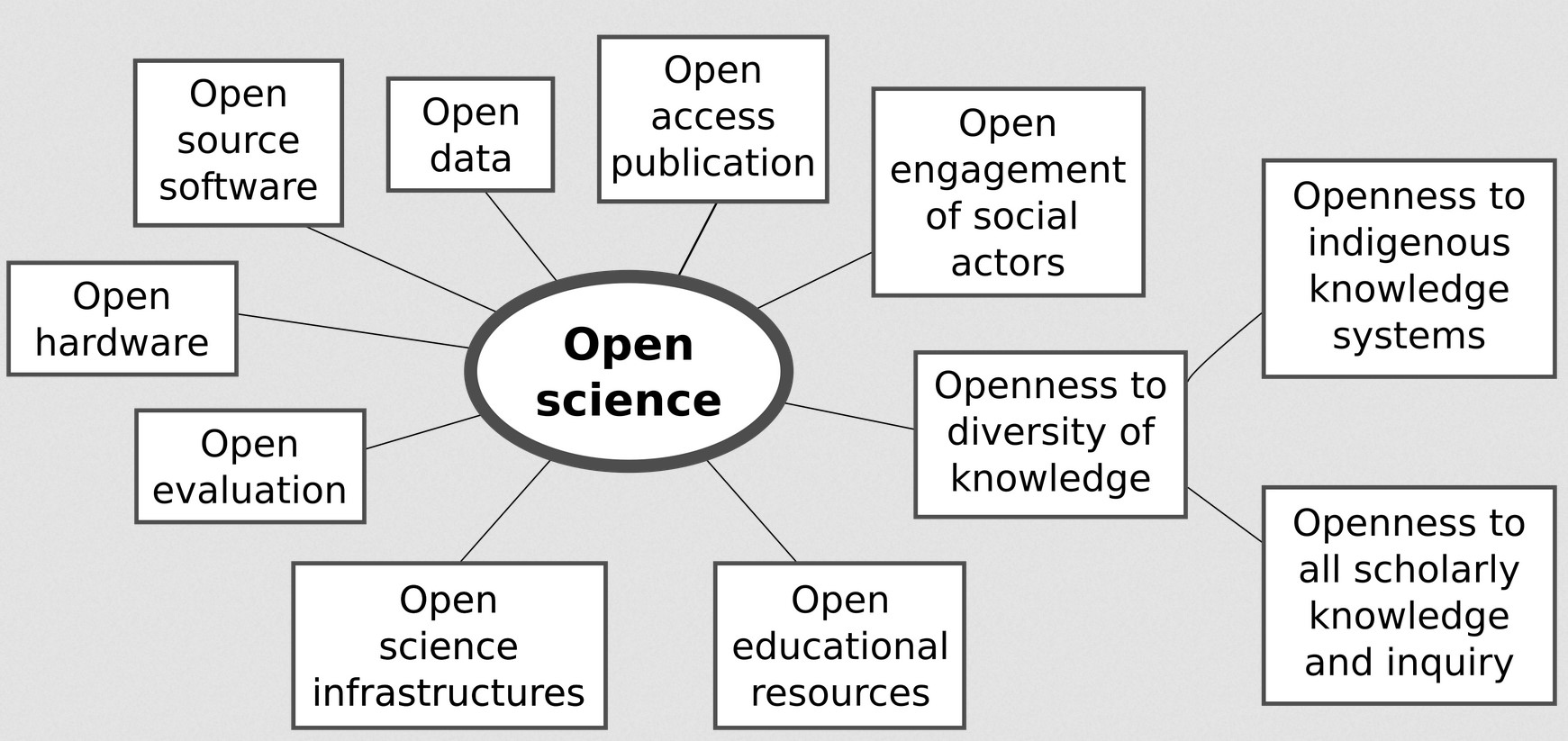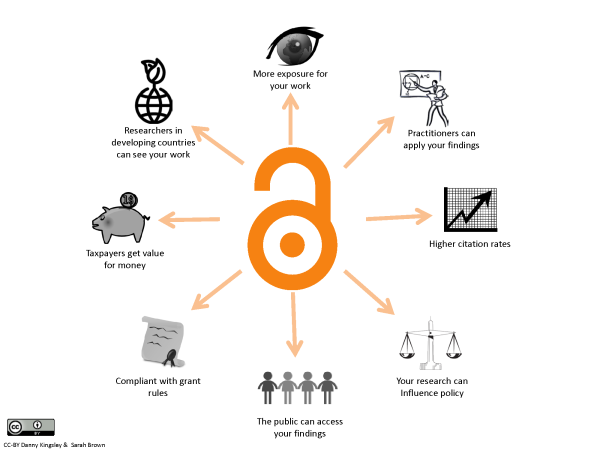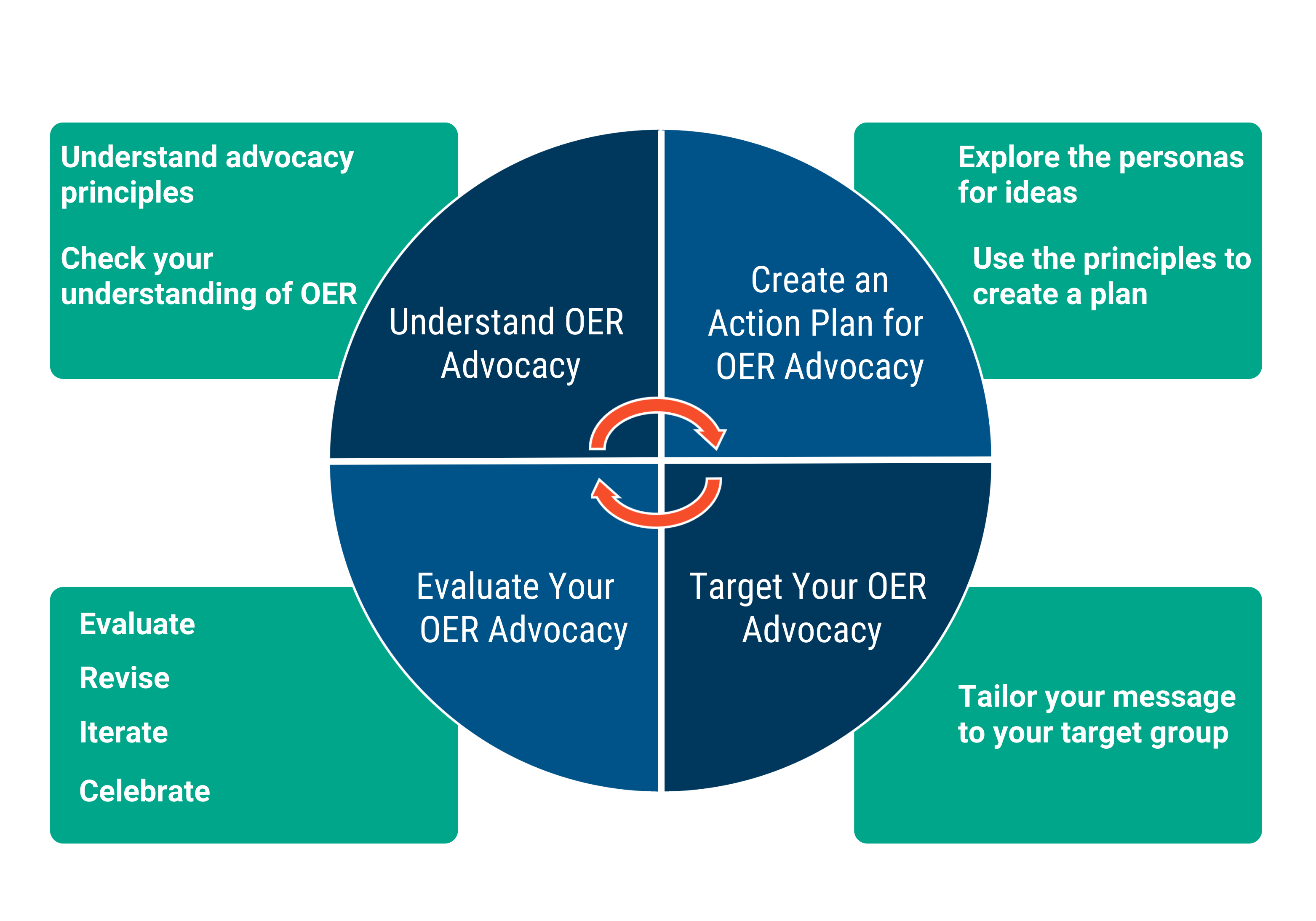Open Science
Section outline
-

This site has been prepared by PublicHealth.Africa to provide resources about Open Science to the editors of journals that might publish articles on public health as well as to researchers who might want to publish their research in an open format.
Note: if you want to gain a certificate for completing this course, you will have to create an account and log in as a student.
The objectives are for:
- All to understand the concepts, advantages and disadvantages of Open Science in relation to public health research
- Journal editors to know how to set up your journal for open publising
- Researchers to know how to submit your research paper and the underlying data so that they are freely available for open access
- All to discuss how to explore, develop and advocate for new approaches to the open publication of research and the underlying data

From Morrison, Wikimedia Commons,
 licensed under the Creative Commons Attribution 4.0 International
licensed under the Creative Commons Attribution 4.0 InternationalAccess to online resources about Open Science
Although some of these resources will be repeated in later sections, you will find links to a number of useful resources about Open Science on this page from PublicHealth.Africa.
How to navigate the course
Each section comprises a set of resources that we think you will find interesting - click on the collections of resources in each section. There is a forum in each topic for reflection.
We encourage you to reflect on what you have learned or comment on the course. When you click on the hyperlink in each topic labelled reflection, you will be able to add a new topic or respond to a previous one. You may want to share your learning from this and other readings, comment on the topics from your own experience, comment on others' posts, or provide feedback on how we can improve the content and presentation.
In the final section you will see that you can gain a Certificate of Completion - the requirements for this are to access the resources and post a reflection in each section.

This work is licensed under a Creative Commons Attribution 4.0 International License.
-
A good way to start thinking about this is to look at the various components shown in the picture in the introduction above. Here is another:

From Danny Kingsley & Sarah Brown licensed under the Creative Commons Attribution 4.0 International license.
UNESCO has defined Open Science as “an inclusive construct that combines various movements and practices aiming to make scientific knowledge openly available, accessible and reusable for everyone…”. In 2015, 45% of the scholarly literature was found to be available for free access, and free access articles had an 18% citation advantage suggesting that they reach a wider audience than those behind a paywall.
A blog from Open Scholar gives a nice summary:
Open Science: Purpose, Benefits, and What it Means for You
Although it’s not a new term, “open science” is quickly becoming more widely and frequently used in all types of academic settings. But what exactly is open science, and why does it matter?
What is Open Science?
To begin, open science is the movement to enable research, and its dissemination, to be accessible by all members of society, free of cost. This includes publications, data, and software. Research is often a collaborative effort. Due to this, the support for open science derives from the idea that all of society should benefit from its findings. Open science is a broader term that encompasses the following:
- Open research data
- Open scientific publications
- Open access
- Open peer review
- Open collaboration
A particular problem for the Global South
Due to a relative scarcity of research capacity, much of the Global South lacks locally relevant and globally valid research on its populations. Research publications from the Global South are low relative to the Global North. Despite a 51% increase between 2008 and 2014, in 2014 sub-Saharan Africa produced only 1.4% of the world’s share of scientific publications. Research outputs from Africa have mainly been limited to 10 countries, with more than 90% of total publications in Africa from these countries.
Reasons for this poor research output may include lack of access to scientific literature, and open publishing provides one way to improve the situation.
In a study of 174 journals from 13 African countries reporting on public health research, the majority of articles were freely available to download. However, only a minority were indexed so could be easily found by other researchers or policy makers. These findings (to be published) stimulated the development of this resource for journal editors and researchers.
-
Look at this nice graphic which demonstrates a number of reasons to encourage Open Science
-
A very nice discussion of how Covid-19 has changed everything!
-
Very nice historical account of the development of open publishing
-
-
A good review of the benefits of open publishing to 2016. Published in F1000 Research, itself an innovative open publishing journal.
-
A study performed by PublicHealth.Africa and LIBSENSE explored the open publishing practices of African journals expected to publish articles on public health. You can link to the published paper (of course it is published as open access itself) Open access publication of public health research in African journals, and here are some of the key findings:
One hundred and seventy four journals were identified from 13 African countries, 55% of the publishers were professional societies, and 52% of the journals were published only twice a year or less. While 64% were freely available to download, only 39% had a Creative Commons Licence, and only 22%, 9% and 21% were indexed in PubMed, MEDLINE or the Directory of Open Access Journals respectively, and only 58% had a Digital Object Identifier. Fifty one percent of the journals levied full Article Processing Charges – 36% of these the journals stated that these charges could be fully or partially waived.
The 6 countries above the group’s median Gross Domestic Product (GDP) published 145 journals, while the 7 countries at or below the median GP published 29 journals. Journals from countries at the median GDP or below were less likely to charge full Article Processing Charges than journals from countries above the median GDP, 28% and 55% respectively (chi-square 7.36; p=0.007).
The study concluded:
Improved opportunities are required for African researchers to publish their findings in local journals, allowing research users to access these findings.
There are a number of resources freely available to assist journals and their editors to create open access opportunities, and to have the journals indexed so that articles can be found through literature searching. Below are some of the resources that you may find of use:
-
-
There is a need for local research in the Global South to help provide an evidence base for policy development. This is particularly the case for public health, where improvements in the health of the population are required. Major causes of the problem include a relative lack of local capacity and leadership to perform research and the prevalence of ‘safari research’ conducted by academics in the Global North, which may have less impact on policy than locally generated research. Compounding this is the lack of opportunity for researchers to publish their findings in local journals with results readily available to other researchers or policymakers. Greater academic credit is currently given to researchers who publish in high-impact international than in local journals. Most international journals have either high article processing charges, or their contents are hidden behind paywalls.
Open access publishing has the potential to provide access to locally produced research, and has many advantages. As part of an initiative to help with the development of opportunities to publish local research, this site provides links to educational resources. We are also planning to offer mentoring opportunities to provide advice to those who would like to know more.
-
-
Online courses and tutorials on Open Access and research writing
-
-
-
There is considerable interest in Open Science, with a number of initiatives to encourage open access to research findings.
Many research funders now require the research that they sponsor to be published as open access with a Creative Commons licence.
This paper, Institutionalizing Open Science in Africa: Limitations and Prospects, is worth a read and concludes: "OS still remains a significant contributor in solving global problems, and thus a potent channel for Africa's development. Hence, institutionalizing OS in Africa should be on the forefront of science stakeholders in Africa more than ever before, especially due to the current pandemic."
A news item in Nature states "Open-access papers have drastically fewer lead authors from low-income regions than do paywalled articles, an analysis of tens of thousands of articles shows." The article puts part of the blame on Article Processing Fees (if the reader or their library does not pay the publisher, the author or their institution or funder has to pay). Nature charges up to $9000 to publish a research article in open access format!
This is a very big topic - some international publishing companies make massive profits, while using free labour provided by editors and reviewers.
There are open source publishing platforms availabe:
- Open Journal Systems-an open source software application for managing and publishing scholarly journals- https://pkp.sfu.ca/ojs/
- Modern Scholarly Publishing Platform. A platform for Journals, Micropubs, Preprints, PRC, Weblabs and more –https://kotahi.community/
There are some interesting and new publishing formats, where results (and the data from which the results were derived) are posted on repositories and the peer review comes later.
The paper Next Generation Repositories from the Confederation of Open Access Repositories offers a good perspective on the importance of repositories.
Sciety aims "to grow a network of researchers who evaluate, curate and consume scientific content in the open." and offers repositories where evaluation of 'preprints' can occur.
Plan E for Education: open access to educational materials created in publicly funded universities is a recent publication which proposes a reform to higher education where educational materials are made available widely. This will require the use of innovative platforms and repositories.
The Coalition for Open Publishing of Public Health in Africa (COPPHA) has been established to create a 'Diamond Open Access Publishing Ecosystem for Public Health Research in Africa.'
We hope that you might want to join a discussion about these issues and post your reflections and ideas in the forum below.
-
Please add your reflections and ideas about Open Science innovations.
- Open Journal Systems-an open source software application for managing and publishing scholarly journals- https://pkp.sfu.ca/ojs/
-
The most progress towards Open Science has been in relation to the open publication of research. Plan S is ‘...an initiative for Open Access publishing that was launched in September 2018. The plan is supported by cOAlition S, an international consortium of research funders. Plan S requires that, from 2021, scientific publications that result from research funded by public grants must be published in compliant Open Access journals or platforms’. More and more funders are requiring open publication of research findings, and in August 2022 the US White House issued a new policy that will require, by 2026, all federally-funded research results to be freely available to public without delay, ending longstanding ability of journals to paywall results for up to 1 year. Many publishers are working to ensure that they can maintain their profit margins, while embracing open publishing - largely through the levying of article publishing charges.
The field of educational resources has been marked by the development and use of Open Educational Resources (OER). Although OER have not been adopted by the majority of academics, there is a great deal of energy and expertise in the field. The MERLOT platform on which this site is hosted is an excellent example of this.
However, there is still a need to advocate for increasing development and adoption of Open Science practices. The Council of Australian University Librarians has developed an Open Educational Resources Advocacy Toolkit. The Toolkit is comprehensive and is oulined in the diagram below.
 'OER Advocacy Process' in the CAUL OER Advocacy Toolkit by CAUL, licensed under a CC BY 4.0 licence.
'OER Advocacy Process' in the CAUL OER Advocacy Toolkit by CAUL, licensed under a CC BY 4.0 licence.We encourage others to extend this advocacy process to other areas of Open Science.
-
How should we advocate for developments in Open Science? Please post your suggestions which you feel are relevant to your setting.
-
-
You can gain a certificate of completion if you have posted your ideas to the two Discussion Forums
